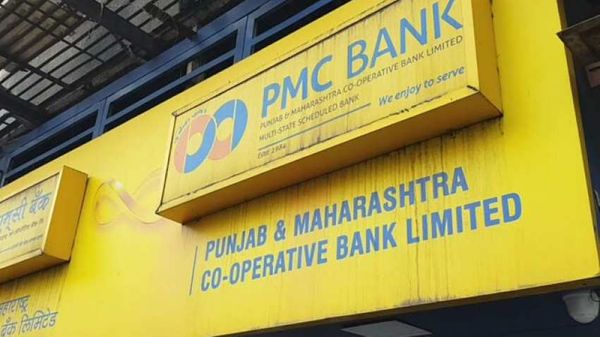23 September 2019 was far worse than November 8, 2016 for Punjab and Maharashtra Co-operative (PMC) depositors when Reserve Bank of India (RBI) restricted the bank from engaging in any business for 6 months and even capped depositors’ withdrawal. The lives of thousands of account holders of PMC Bank were thrown into dismay when RBI announced that depositors cannot withdraw more than Rs 1000 of the total balance in every savings bank account or current account.

However, post the panic, RBI has now increased the withdrawal limit from Rs 1,000 to Rs 10,000 as announced in an RBI press release dated 27 September 2019. This PMC Bank crisis has worried several account holders and depositors across the nation. This makes account holders question – Whether or not RBI can impose PMC Bank like restrictions on nationalised and commercial banks? Or is this banking crisis only possible in co-operative and smaller banks?
Is There any RBI Guideline to
Protect Depositors If Bank Goes Bankrupt or is in a situation like PMC Bank
Crisis?
Yes, there is, and as per the RBI guidelines, all co-operatives and commercial banks (incl. branches of foreign banks) are compulsorily required to insure deposit of depositors for maximum up to Rs. 1 lakh under DIGC – Deposit Insurance and Credit Guarantee Corporation. As per the DIGC rules each of the depositor is insured up to Rs. 1 lakh (maximum) for both the principal and interest held by him/her in savings, current, FDs and recurring accounts.
So, if in case, the bank goes bankrupt, you as an account holder and /or depositor will get the insured amount. However, no matter how many lakhs you have in your account/accounts in various branches of the same account, you will only get the insured amount i.e. not more than 1 lakh (incl. principal and interest amount).
In case of joint accounts, however, both the accounts (single and joint) will be insured separately under the DICGC policy.
Illustrations explained by DICGC
| Savings A/C | Current A/C | FD A/C | Total Deposits | Deposits Insured upto | |
| Shri S. K. Pandit (Individual) | 17,200 | 22,000 | 80,000 | 1,19,200 | 1,00,000 |
| Shri S. K. Pandit (Partner of ABC & Co.) | 75,000 | 50,000 | 1,25,000 | 1,00,000 | |
| Shri S. K. Pandit (Guardian for Master Ajit) | 7,800 | 80,000 | 87,800 | 87,800 | |
| Shri S. K. Pandit (Director, J.K. Udyog Ltd.) | 2,30,000 | 45,000 | 2,75,000 | 1,00,000 | |
| Shri S. K. Pandit jointly with Smt. K. A. Pandit | 7500 | 1,50,000 | 50000 | 2,07,500 | 1,00,000 |
What Types of Deposits are Exempted
Under DICGC Scheme?
DICGC covers all type of regular deposits but exempts few as follows –
- Inter-bank deposits
- Deposits of State/Central Government
- Deposits of the State Land Development Banks with the State co-operative bank
- Deposits of Foreign Government
- Any amount due on account of and deposit received outside India
Also, please note that primary co-operative societies are not covered under DIGC – Deposit Insurance and Credit Guarantee Corporation.
What Should You Do?
In order to avoid becoming victim in situations like PMC Bank crisis, as a bank depositor, you should –
Always check the financial health of your bank especially when you are an account holder or a depositor in a co-operative bank. The reason being, while public and private sector banks are strictly regulated exclusively by RBI (recall PNB fraud case and how RBI dealt with them), co-operatives are jointly regulated by RBI and state governments which makes RBI less strict in case of these banks.
Further, you need to keep an eye on some of the important metrics of the bank such as – Net NPA (Non-Performing Assets) ratio, ROA (Return of Assets), PCR (Provisioning Coverage Ratio) to know how well or worst your bank is performing to avoid putting large sum of money in a single bank.
Also Read: Here’s how you can check the financial health of your bank
Besides, rather than putting all your money in one bank, you should always try to segregate the amount in different banks, preferably in public sector banks for the above-mentioned reasons.

